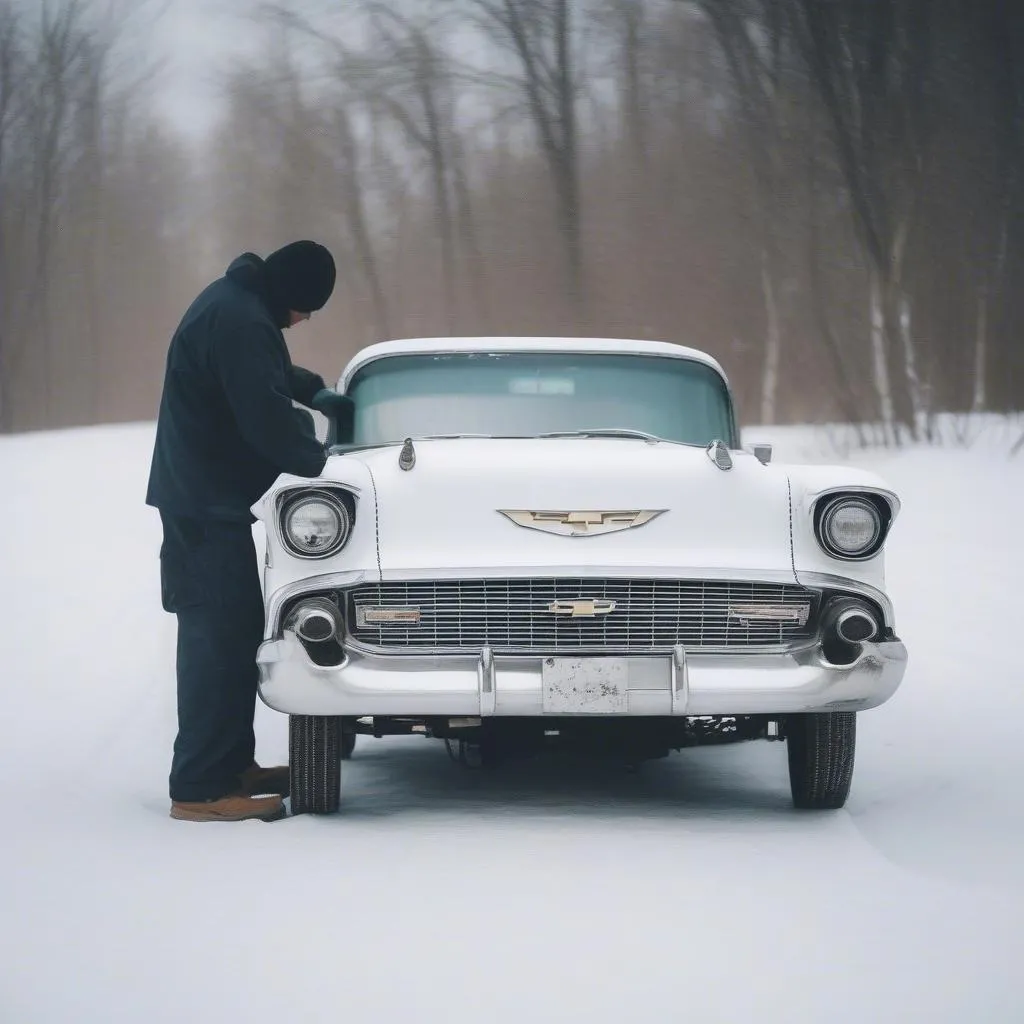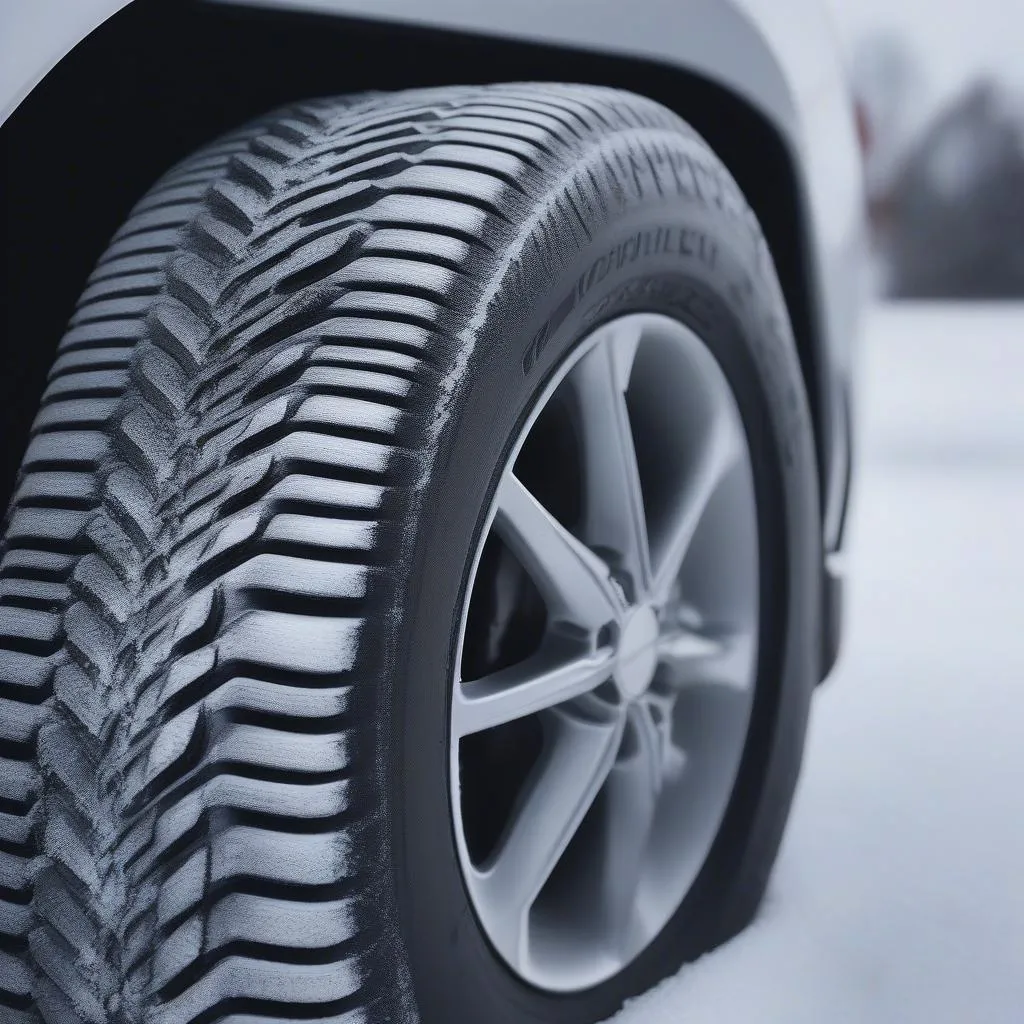Let’s be honest, winter can be brutal on your car. The cold temperatures, icy roads, and snow can wreak havoc on your vehicle’s performance. And if you own a Chevrolet, you know it’s important to take extra precautions to keep it running smoothly during the colder months.
Why Winter Chevrolet Cars Need Special Attention
Winter is a demanding time for all cars, but Chevrolets, especially older models, can be particularly sensitive to the cold. Here’s why:
From a Mechanic’s Perspective
“The cold weather affects every part of your vehicle,” says John Smith, a certified auto mechanic with over 20 years of experience. “From the engine to the battery to the tires, everything is working harder in winter.”
From an Engineering Perspective
The components of a car are designed to operate within a specific temperature range. Extreme cold can cause problems like:
- Reduced engine performance: Cold temperatures can lead to thicker oil, slower engine warm-up times, and reduced fuel efficiency.
- Battery issues: Cold weather can significantly reduce battery life and make it harder for your car to start.
- Tire problems: Tires lose pressure in the cold, and if they’re not winter-rated, they can struggle to grip the road.
From an Economic Perspective
Winterizing your Chevrolet not only keeps your car running smoothly but also saves you money in the long run. By addressing potential issues early on, you can avoid costly repairs and unexpected breakdowns.
Tips for Preparing Your Winter Chevrolet Cars
Here’s a comprehensive guide to winterizing your Chevrolet and ensuring a smooth ride, no matter how cold it gets:
1. Winterizing your Engine
- Check your engine oil: Make sure your engine oil is the correct viscosity for cold weather. Use a synthetic oil if possible, as it can withstand extreme temperatures better.
- Replace your air filter: A clean air filter ensures proper airflow to your engine, which is especially important in cold weather.
- Check your coolant: Ensure your coolant is at the correct level and has the proper antifreeze concentration for your local climate.
- Inspect your belts and hoses: Ensure your belts are in good condition and not cracked or frayed.
2. Winterizing Your Battery
- Check battery charge: Cold weather can significantly reduce battery life. Have your battery checked for charge and ensure it’s in good condition.
- Clean the battery terminals: Corrosion on the battery terminals can hinder electrical flow, making it difficult to start your car.
3. Winterizing Your Tires
- Check tire pressure: Cold weather can cause your tires to lose pressure, so check them regularly and inflate them to the manufacturer’s recommended level.
- Consider winter tires: If you live in a region with frequent snow or ice, consider investing in winter tires. They offer superior grip in cold conditions and are designed to handle snow and ice.
- Inspect tire tread depth: Make sure your tires have adequate tread depth for safe traction on snow and ice.
4. Other Winterizing Tips
- Keep your gas tank full: A full gas tank helps prevent condensation and keeps your fuel system working smoothly.
- Carry an emergency kit: Pack a winter survival kit in your car, including a blanket, flashlight, jumper cables, and a shovel.
- Clean your windshield: Ensure your windshield wipers are in good condition and your windshield washer fluid is rated for freezing temperatures.
Frequently Asked Questions About Winter Chevrolet Cars
1. Is it necessary to use winter tires on my Chevrolet?
This depends on your location and driving conditions. If you live in an area with frequent snow or ice, winter tires are highly recommended. They offer superior grip and can help prevent accidents.
2. What are the signs of a failing car battery in cold weather?
Signs of a failing battery include:
- Slow cranking
- Dim headlights
- Difficulty starting the car
- Clicking sound when trying to start
3. How often should I check my tire pressure in winter?
It’s a good idea to check your tire pressure at least once a month during winter, or even more frequently if you notice a significant drop in temperature.
4. How can I prevent my windshield from fogging up in winter?
You can use a defogger product or a damp cloth to wipe the inside of your windshield. Make sure your heater and defroster are working properly.
5. What are some other winterizing tips for Chevrolet cars?
Besides the tips mentioned above, you can also:
- Protect your paint: Use a car cover to protect your paint from harsh weather conditions.
- Avoid parking in shaded areas: Your car will take longer to warm up if it’s parked in a shaded area.
- Keep your windshield wipers clean: Snow and ice can build up on your wipers, so keep them clean and free of debris.
Wrapping Up
Winter can be a challenging time for car owners, but with a little preparation, your Chevrolet can handle the cold and keep you safe and comfortable on the road.
 Chevrolet-Winter-Maintenance
Chevrolet-Winter-Maintenance
 Winter-Tires-for-Chevrolets
Winter-Tires-for-Chevrolets
We hope this article has provided you with valuable information to keep your Chevrolet in top shape this winter. Feel free to share your tips and experiences in the comments below!
If you have any questions or need help winterizing your Chevrolet, don’t hesitate to contact us! Our team of experts is available 24/7 via WhatsApp at +84767531508 to assist you with any car maintenance needs.